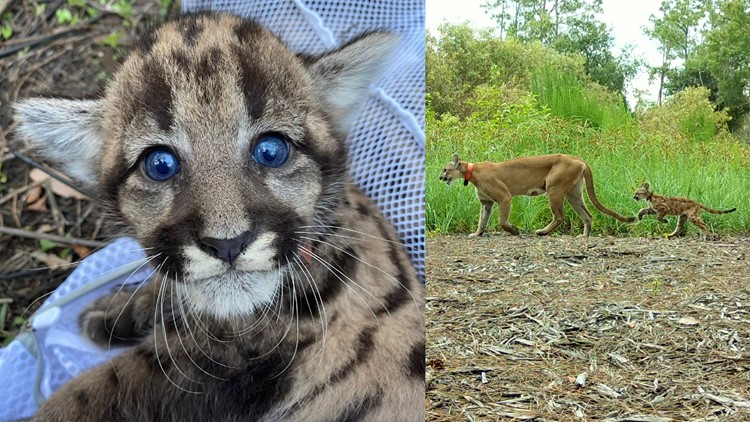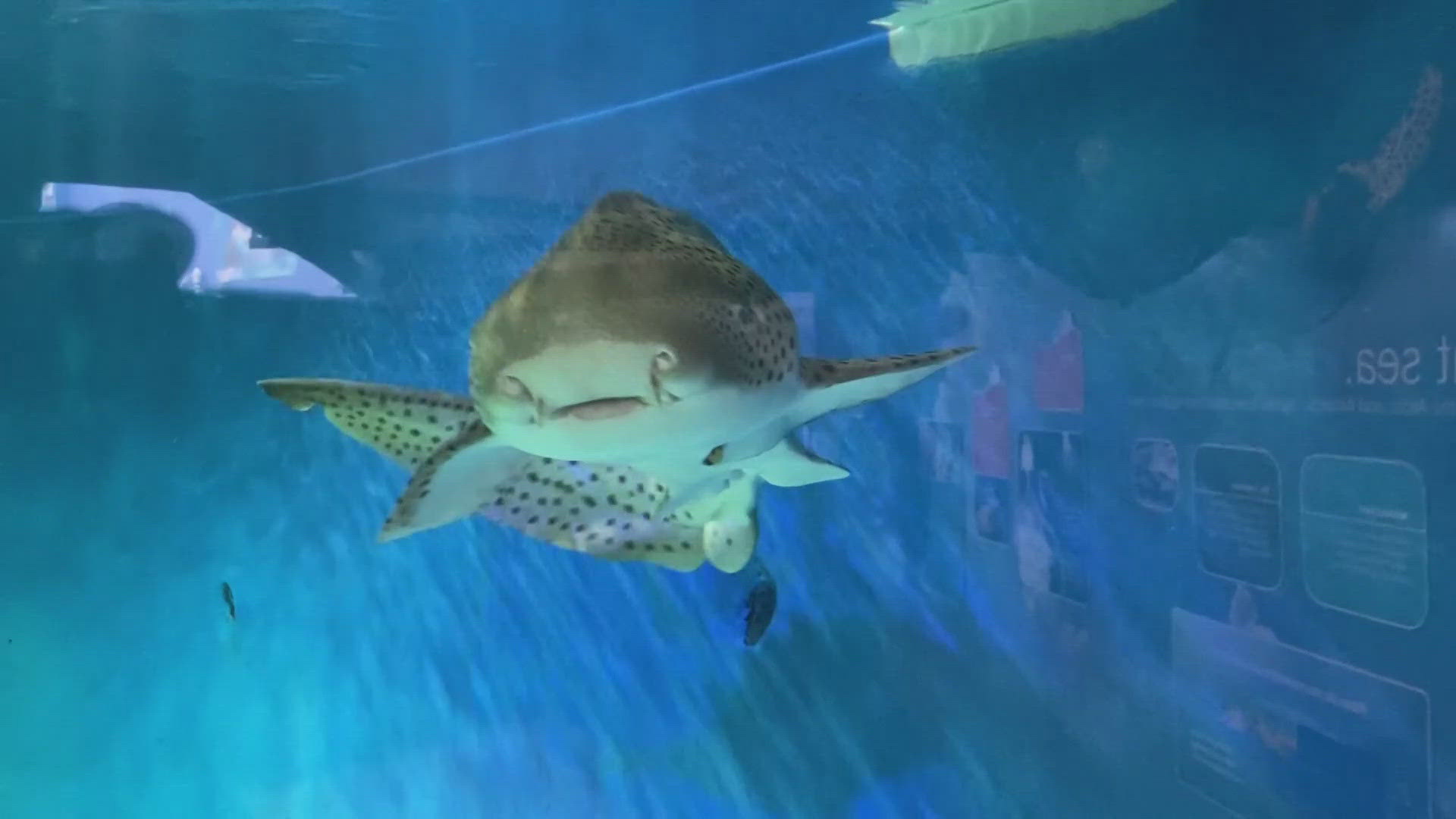NAPLES, Fla. — Baby Florida panthers only have a 33% chance of survival, based on recent data. It's a daunting number facing the adult panther population, which only stands at about 120-230 total, according to the Florida Fish and Wildlife Conservation Commission.
That's why wildlife experts are working to find out as much as they can about the endangered species.
The FWC shared an update Tuesday about a litter of panther kittens they've been tracking — and, it's almost too cute to handle.
Biologists began tracking the three kittens, two females and one male, at the Naples Heritage Golf and Country Club back in March when they were just 21 days old.
They completed their final health assessment of the animals this week.
This wild animal tracking is made possible by the FWC's well-coordinated panther capturing system. It involves using dogs to sniff out a panther's scent and then safely capturing the animal using a sedative dart gun and a portable air cushion.
Biologists safely collect samples from the animal, vaccinate it against any threatening diseases and leave it with a special radio collar that tracks its movements. These collars are what help researchers locate new litters, which are known for being able to camouflage themselves in the wild, the FWC says.
“It’s like finding a needle in a haystack," FWRI’s panther veterinarian wrote in a post. “They camouflage so well, flattening themselves in the brush, staying silent until you’re right next to them, then they hiss.”
As the team explained in the Facebook post, scientists wait until the collared mother leaves her den before quietly moving in to collect data on the kittens. The babies are weighed, de-wormed, microchipped and placed in an expandable tracking collar.
These collars are how the FWC learns more about panthers in the effort to better protect our state animal from things like cars, human threats and a disorder that leads to rear-leg weakness and difficulty walking.
"Kitten survival rate estimates are low (33%). Data collected from radio collared kittens can help improve these estimates and vital for monitor for changes in survival rates," the agency wrote.
You can stay on the "Panther Pulse" and learn what you can do to protect the animals on the FWC website.



